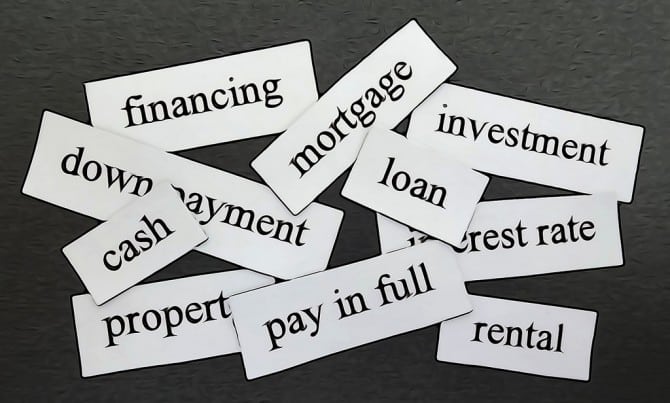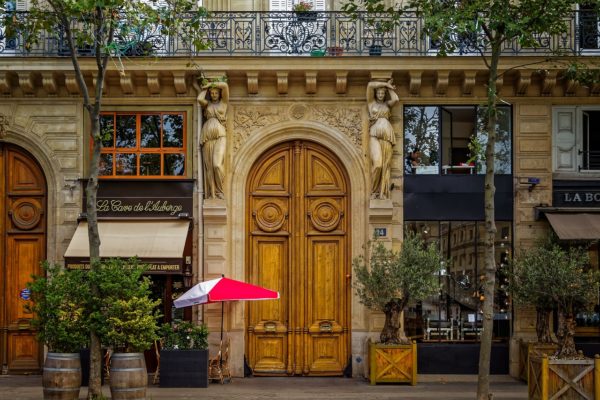Expert Insight, Breaking News, and Insider Stories on Real Estate in Paris

Buying real estate in France: Can non-residents obtain mortgage loans?
As a non-resident, obtaining a loan to finance a property investment in France is subject to certain peculiarities. Variable rates, application fees for a mortgage and mandatory life insurance are just some of the factors to bear in mind when applying for a loan in France.
While French banks will lend up to 85% of a property’s assessed value and renovations to most non-resident buyers, it is important to bear in mind the particularities of borrowing in the country as a non-resident.The buyer’s country of residence, employment situation and expenses related to living abroad are just some of the factors that come into play when calculating interest rates and borrowing fees. Paris Property Group’s Kathryn Brown says many clients finance their property purchase to take advantage of low interest rates, currently hovering around 2%. Brown says “often our buying clients can leverage their purchase, keeping their higher earning equity investments, and diversifying into real estate by borrowing at historically low rates.” Another advantage is the ability to lock in the very low currency exchange rates for up to two years which Brown says makes Paris real estate a very attractive investment option.
“It’s a perfect storm,” says Brown. “Not only are real estate prices in Paris about 15% to 25% off the peak of 2011, buyers can now borrow at historically low interest rates and in some cases lock in their mortgage payments at very advantageous exchange rates.”
If you are considering investing in property in France and want to use a loan for the purchase, it is key to recognize that banks do not lend to non-residents under the same conditions as to French residents. On average, rates granted to non-residents are between 0.2% and 0.5% higher than those offered to residents. This is due to it being more difficult for a French bank to evaluate a non-resident’s resources and financing capability.
Variations in exchange rates, a different cost of living and working contracts specific to each country contribute to making non-residents’ finances harder to ascertain for a bank. Moreover, banks may offer more favorable rates to customers who have placed their savings and current accounts in the same establishment delivering the mortgage, which is often the case for residents over non-residents. While this shouldn’t put non-resident buyers off borrowing to finance their property purchase in France, it is necessary to take these parameters into account when applying for a loan. On the plus side, non-resident buyers prospecting in France often have higher incomes than residents, meaning that it is possible to negotiate a favorable interest rate, as French banks issue loans according to a loan-to-income ratio.
Other factors to bear in mind when applying for a loan in France are:
-The nominal rate: This is calculated by the bank based on the rate at which it can itself borrow on the markets and the margin it wants to add based on different criteria. Rates can be fixed or variable.
-The conditional clause: If a buyer is seeking a loan in France, the preliminary sales contract will include a clause pertaining to conditional financing. The clause sets out the intended loan amount, rate of interest and length of the term. If the buyer cannot obtain a loan on terms at least as favorable as those specified, he or she is released from the obligation to buy the property without having to pay a penalty.
-Application fees: This is payable to the bank to start and then study a buyer’s file. These fees are generally between 1% and 1.5% of the borrowed amount and are only payable during the final stages of the loan process.
-Deposit: This is the guarantee systematically asked of a non-resident borrower by the lending bank — it usually represents between 0.5% and 3% of the borrowed amount.
-Life insurance: French banks require borrowers to get life insurance to guarantee repayment of the loan in case of unforeseen circumstances — redundancy or death of the borrower, for instance. While most banks offer life insurance, the buyer is free to seek one out from an alternative body. Brown notes that it is advisable to be in touch with a bank or mortgage broker at the start of your property search, so that you have a clear idea of your budget and all the necessary documentation ready so you can jump on the right property when you find it.
Photo credit: Flickr / Rental Realities
Contact Paris Property Group to learn more about buying or selling property in Paris.













